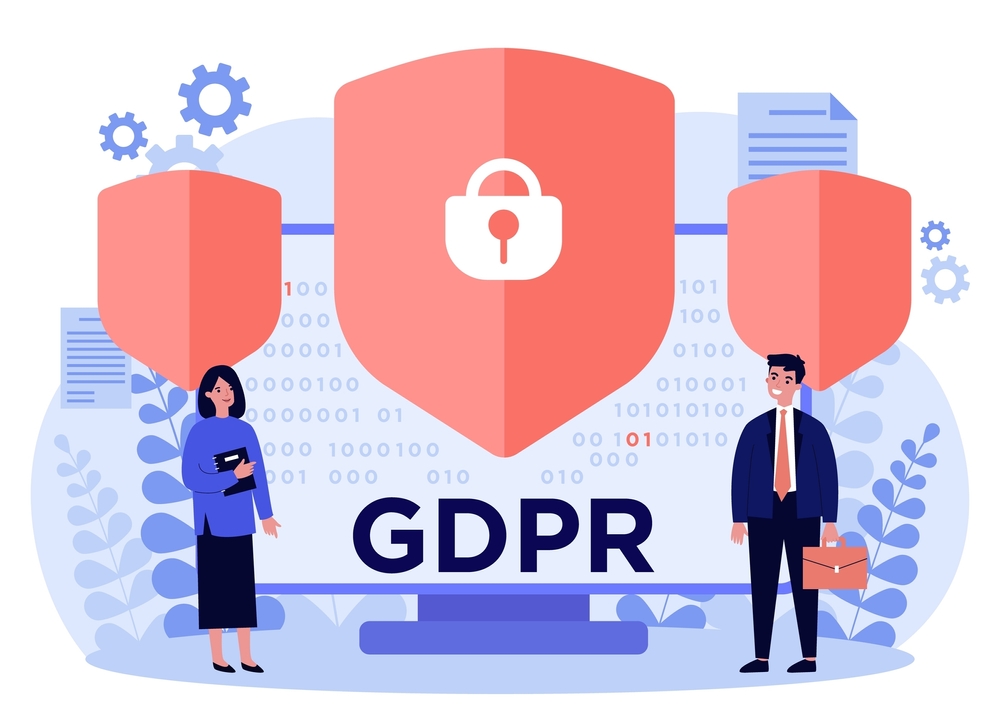Understanding Data Security for Business
Data Security for Business: In today’s digital age, data security has become a crucial aspect of business operations. With increasing cyber threats and stringent regulations, safeguarding sensitive information is not just an option but a necessity. This guide delves into why data security matters for businesses and provides actionable strategies to enhance protection.
Why Data Security is Essential for Business
1. Protecting Sensitive Information
Description: Businesses handle a vast amount of sensitive information, including customer data, financial records, and proprietary business information. Ensuring this data is secure is fundamental to maintaining the integrity and trustworthiness of your business.
Risks:
- Data Breaches: Unauthorized access can lead to significant financial and reputational damage.
- Identity Theft: Exposed personal information can be misused for fraudulent activities.
Benefits of Strong Data Security:
- Customer Trust: Secure handling of data builds confidence among customers.
- Regulatory Compliance: Adherence to data protection laws and standards.
2. Preventing Financial Loss
Description: Data breaches can result in substantial financial losses, including costs related to legal fees, fines, and remediation efforts. Implementing robust data security measures helps mitigate these risks.
Costs Associated with Data Breaches:
- Legal Penalties: Non-compliance with data protection regulations can result in hefty fines.
- Remediation Costs: Expenses incurred in addressing and rectifying a breach.
Benefits of Prevention:
- Reduced Financial Risk: Minimizes the likelihood of financial loss due to data breaches.
- Cost Efficiency: Preventing breaches is often more cost-effective than dealing with their aftermath.
3. Ensuring Business Continuity
Description: Data security is crucial for maintaining business continuity. A data breach or loss can disrupt operations, leading to downtime and loss of productivity.
Impact of Disruptions:
- Operational Downtime: Interruption of services can affect business operations.
- Data Loss: Loss of critical data can hinder decision-making and operations.
Benefits of Security Measures:
- Operational Resilience: Ensures business operations remain stable even in the face of cyber threats.
- Backup and Recovery: Facilitates quick recovery from data loss incidents.
4. Complying with Regulations
Description: Businesses are required to comply with various data protection regulations that mandate how data should be handled and protected. Failure to comply can lead to legal repercussions.
Key Regulations:
- General Data Protection Regulation (GDPR): Governs data protection and privacy in the European Union.
- California Consumer Privacy Act (CCPA): Regulates how businesses handle personal information in California.
Benefits of Compliance: Data Security for Business
- Avoidance of Fines: Reduces the risk of legal penalties for non-compliance.
- Enhanced Reputation: Demonstrates a commitment to data protection and legal adherence.
5. Building Customer Confidence
Description: Customers are more likely to engage with businesses that prioritize their data security. Protecting customer information is essential for maintaining positive relationships and fostering loyalty.
Impact of Data Breaches on Customer Trust: Data Security for Business
- Erosion of Trust: Data breaches can lead to a loss of customer confidence.
- Negative Publicity: Breaches can damage the company’s reputation and brand image.
Benefits of Building Trust:
- Customer Loyalty: Secure handling of data fosters long-term customer relationships.
- Positive Brand Image: Enhances the company’s reputation as a trustworthy entity.
How to Implement Effective Data Security Measures
1. Conduct Regular Security Audits
Description: Regular security audits help identify vulnerabilities and assess the effectiveness of existing security measures.
Best Practices:
- Perform Vulnerability Assessments: Regularly check for potential security weaknesses.
- Review Security Policies: Update policies based on audit findings.

2. Implement Strong Encryption
Description: Encryption protects data by making it unreadable to unauthorized users, both in transit and at rest.
Best Practices:
- Use SSL/TLS Certificates: Secure data transmissions with encryption protocols.
- Encrypt Sensitive Data: Apply encryption to stored data and backups.
3. Employ Multi-Factor Authentication (MFA)
Description: MFA adds an extra layer of security by requiring multiple forms of verification for accessing systems and data.
Best Practices:
- Enable MFA: Use MFA for accessing sensitive systems and accounts.
- Choose Robust Authentication Methods: Consider biometrics or hardware tokens.
4. Train Employees on Security Best Practices
Description: Educating employees about data security helps prevent human errors that could lead to security breaches.
Best Practices: Data Security for Business
- Provide Regular Training: Offer sessions on data security awareness and practices.
- Simulate Phishing Attacks: Train employees to recognize and respond to phishing attempts.
5. Develop a Comprehensive Data Protection Strategy
Description: A well-defined data protection strategy outlines how data should be managed and protected across the organization.
Best Practices:
- Create a Data Protection Policy: Document procedures for handling and securing data.
- Implement Access Controls: Restrict data access to authorized personnel only.
Conclusion
Data Security for Business; Data security is a critical component of modern business operations. By understanding its importance and implementing effective security measures, businesses can protect sensitive information, ensure compliance, and build trust with customers. Investing in robust data security strategies is essential for safeguarding business assets and maintaining operational continuity.
For more information on IT services and data security solutions, visit NABCO IT Services.
Data Security for Business; For professional assistance with data security, contact us to ensure your organization is protected with the latest security measures.
Read more related articles to enhance your knowledge
What is Data Security? The Ultimate Guide
Why Data Security Matters: Protecting Your Information in a Digital World

